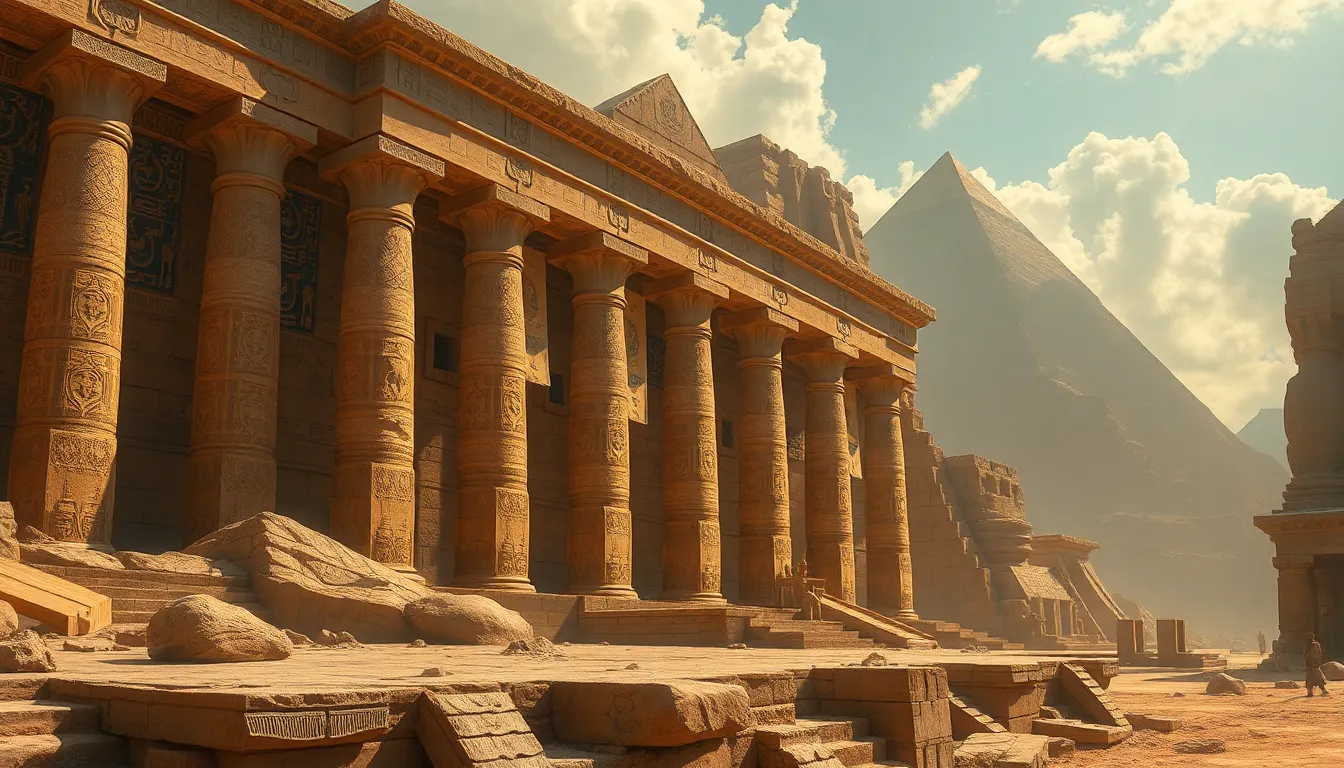Mythical Inspirations for Modern Fantasy: How Egypt Influences Literature
I. Introduction
Modern fantasy literature is a genre that transports readers to otherworldly realms, filled with magic, mythical creatures, and epic quests. It thrives on imagination and creativity, often drawing inspiration from ancient myths and cultures. One of the most influential sources of inspiration for contemporary fantasy is the rich tapestry of Egyptian mythology, which has captivated the imagination for centuries.
Egypt’s mythological history is vast and intricate, populated by a diverse pantheon of gods, goddesses, and legendary heroes. This article aims to explore the profound impact of Egyptian mythology on modern fantasy literature, highlighting key themes, symbols, and character archetypes that continue to resonate in contemporary narratives.
II. The Pantheon of Egyptian Gods
The ancient Egyptians worshipped a multitude of deities, each embodying different aspects of life and the universe. Some of the most prominent gods include:
- Osiris: The god of the afterlife, resurrection, and fertility, often depicted as a mummified king.
- Isis: The goddess of magic and motherhood, known for her protective and nurturing qualities.
- Anubis: The god of mummification and the afterlife, recognized by his jackal head, he guided souls to the underworld.
In Egyptian mythology, gods were deeply intertwined with the daily lives of the people. They represented natural forces and human experiences, similar to the archetypical characters found in modern fantasy literature. For instance, the hero’s journey often mirrors the trials faced by mythological figures, making these ancient deities relevant to contemporary narratives.
III. Themes of Death and Afterlife
Central to Egyptian mythology is the belief in the afterlife and the journey of the soul. The ancient Egyptians held that life continued beyond death, leading to elaborate burial practices and the construction of grand tombs. This belief system has significantly influenced fantasy literature, where quests often revolve around the themes of death, resurrection, and the afterlife.
Notable examples of this influence can be seen in the works of authors like Neil Gaiman, whose stories often delve into the complexities of life and death. In his book The Sandman, Gaiman explores the concept of dreams and the afterlife, echoing elements found in Egyptian beliefs.
IV. The Power of Magic and Mysticism
Magic was an integral part of ancient Egyptian culture, revered and practiced in various forms, from healing spells to protective amulets. This emphasis on magic has been mirrored in modern fantasy literature, where magic often serves as a central element of the plot.
Authors like Rick Riordan have effectively woven Egyptian magic into their storytelling. In The Kane Chronicles, Riordan introduces readers to the world of Egyptian gods and magic, showcasing spells and rituals that echo ancient practices. This blend of mythology and magic captivates readers and enriches the fantasy genre.
V. Symbols and Artifacts in Egyptian Mythology
Egyptian mythology is rich with iconic symbols that carry deep meanings. Some of the most recognized symbols include:
- The Ankh: Symbolizing eternal life and immortality.
- Eye of Horus: Representing protection, royal power, and good health.
- Scarabs: Symbolizing transformation and rebirth.
These symbols have found their way into contemporary fantasy settings, often representing deeper themes within the narratives. In The Kane Chronicles, symbols play a vital role in the characters’ journeys, serving as keys to understanding their powers and heritage. This connection between ancient symbols and modern storytelling highlights the lasting impact of Egyptian mythology.
VI. The Influence of Egyptian Myth on Character Development
Egyptian mythology provides a wealth of complex characters, from divine beings to mortal heroes. These figures often embody traits that resonate with modern audiences, allowing for the creation of multifaceted characters in fantasy literature.
Heroes and anti-heroes drawn from mythological tales showcase the struggle between good and evil, loyalty and betrayal. For example, the character of Set, a god associated with chaos and disorder, serves as a compelling antagonist in various narratives, embodying the complexities of morality that modern fantasy often explores.
Authors like Rick Riordan and others have crafted character arcs that reflect these mythological influences, leading to rich, engaging stories that captivate readers.
VII. Cultural Appropriation vs. Appreciation
As modern authors draw upon Egyptian mythology, it is crucial to address the ethical implications surrounding cultural appropriation versus appreciation. While it is essential to celebrate and explore these ancient stories, writers must navigate the fine line between respectful homage and exploitative representation.
Balancing respect for the source material with creative expression requires sensitivity and understanding of the culture’s historical context. Notable authors, such as Nnedi Okorafor and others, strive to navigate this landscape responsibly, ensuring that their works honor the traditions and beliefs of the cultures they draw from.
VIII. Conclusion
The influence of Egyptian mythology on modern fantasy literature is profound and multifaceted. From the pantheon of gods to themes of death and magic, these ancient stories continue to inspire contemporary narratives and character development. As writers explore the depths of cultural mythology, they contribute to a richer tapestry of storytelling that honors the past while engaging with the present.
The future of fantasy literature will undoubtedly see continued inspiration from Egyptian lore, inviting new generations to discover the timeless wisdom and wonder of this ancient civilization. As we delve into these mythologies, we not only enrich our stories but also cultivate a deeper appreciation for the cultures that have shaped our understanding of the world.




